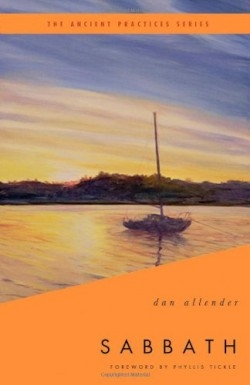Sabbath
The Ancient Practices Series
It is love for God that calls one to endure the physical discipline of fasting, and that same love which fills one’s Sabbath rest with delight. Lacking that love, these spiritual disciplines would be devoid of meaning, mere physical responses to some overwhelming, body-shocking event (fasting), or a simple break from overwork and exhaustion (rest). Properly understood and placed within the context of relationship with the Divine, each is a powerful, unifying practice that strengthens, enlivens, and delights body, mind, soul, and spirit. But the dualistic mindset of the twenty-first-century world places body and spirit at war with each other, fragmenting the Eikon (the image of God) that human beings were meant to reflect. Perhaps, these volumes suggest, this is why neither fasting nor the keeping of the Sabbath are much understood or appreciated today, even by those who consider themselves to be religious or spiritual. Scot McKnight’s Fasting and Dan Allender’s Sabbath, both part of Thomas Nelson’s Ancient Practices series, couple historical perspective with modern insight, showing the practices to be as valid, helpful, and indeed, necessary today as they were in the ancient world.
The Sabbath is “an invitation to enter delight,” asserts author Dan Allender, Ph.D., president and professor of counseling at Mars Hill Graduate School near Seattle. It is to be an intimation of eternity, with all the joy, peace, wonder, and delight that thoughts of eternity spent in fellowship with the God of creation suggest. Yet, as Allender states, “few people are willing to enter the Sabbath and sanctify it, to make it holy, because a full day of delight and joy is more than most people can bear in a lifetime, let alone in a week.”
The Sabbath is a “sanctuary in time”; it is time set apart, prepared for with intent, protected, and made sacred for the sharing of the delight of God, who looked about with satisfaction at all that was made, and declared it good. This same God made the keeping of the Sabbath not an option but a commandment, and throughout history its observation has been bound with rules and restric-tions. Allender traces Sabbath-keeping through history and Scriptures, reflecting on a theology of time, play, and feasting from its ancient roots to current practice, coming to the same conclusion as Jesus, who said, “The Sabbath was made for man, not man for the Sabbath.”
In a culture that has immunized itself from true joy, a new look at the Sabbath as a time to discover and do what one would truly enjoy is much needed. The resulting delight will bubble over into gratitude and love for God that can fill the rest of one’s week, making the keeping of the fourth commandment not a burden, but a taste of the goodness of God.
Reviewed by
Kristine Morris
Disclosure: This article is not an endorsement, but a review. The publisher of this book provided free copies of the book to have their book reviewed by a professional reviewer. No fee was paid by the publisher for this review. Foreword Reviews only recommends books that we love. Foreword Magazine, Inc. is disclosing this in accordance with the Federal Trade Commission’s 16 CFR, Part 255.

